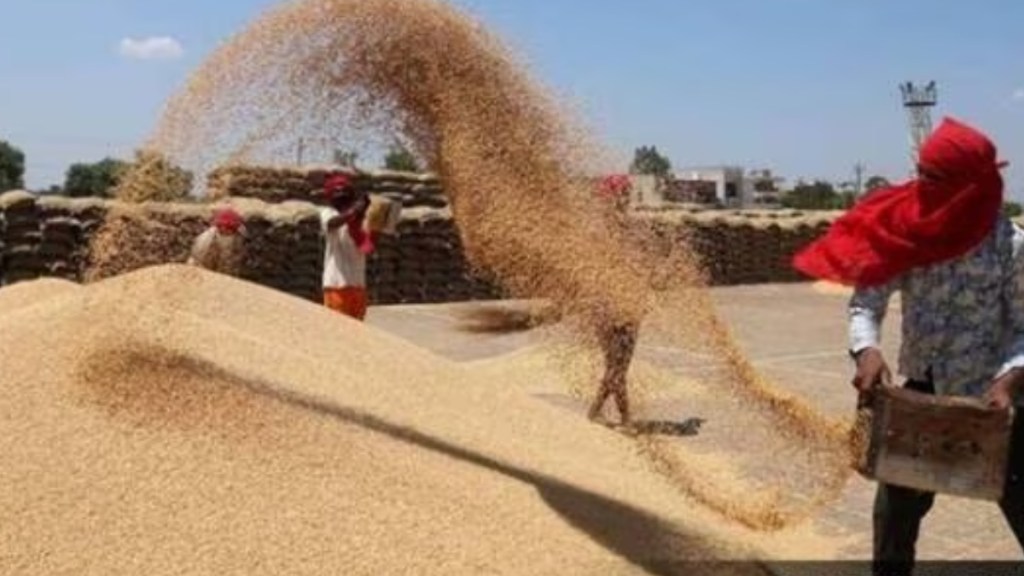Running the Pradhan Mantri Garib Kalyan Anna Yojana (PMGKAY) or free ration scheme in the current form for the next five years would cost the exchequer Rs 11.8 trillion, the government said on Thursday. The statement followed Wednesday’s Cabinet approval for extending the scheme for five years starting January 1, 2024.
Information and Broadcasting minister Anurag Thakur said there will be no shortage of funds to run the scheme. Neither would there be issues with procurement on account of extending the PMGKAY, the minister added.
An official told FE that the estimate of the cost of PMGKAY was made after taking into consideration a projected increase of 7%-8% in the minimum support price (MSP) of the relevant crops – rice and wheat and coarse grains– annually, and other costs such as transportation, storage and incidentals. The MSP increases and other expenses are expected to push up economic costs of handling rice and wheat by the Food Corporation of India (FCI), and a part of the cost is sought to be defrayed by the off-loading of grains in the open market.
Sources also said that the cost incurred under the scheme could also go up based on the new census. Currently 75% of the rural and 50% of the urban population are entitled to get food grains under National Food Security Act (NFSA) based on census, 2011. So far as the criteria for identifying the beneficiaries – 813 million at present– don’t change, the number of people entitled to this succour could increase with population.
The UPA government brought the National Food Security Act in 2013, making highly subsidised supply of grains to target population as a legal right, so as to meet the nutritional requirements of people. The Act provided for revision of the subsidised “issue prices” of grains “in three years” from the commencement of the Act; it also stated that that the Centre would review the level of subsidy “from time to time.” The plan was also to periodically review the beneficiary pool, but all this never occurred.
As a result, annual food subsidy (Rs 2.25-2.5 trillion at current prices) is now as high as 6% of the Central Budget.
The free ration scheme was to end in December 2023, but prime minister Narendra Modi earlier this month at an election rally in Chhattisgarh had stated that the scheme would run for another five years.
The additional budgetary cost of running the free ration scheme – rather than the NFSA in the previous form – for January-March quarter of the current fiscal could be around Rs 4,000 crore only. This is because under NFSA itself grain supplies used to be heavily subsidised.
For FY24, Rs 1.97 trillion has been budgeted under this expense. However, sources said that subsidy amount could decline a bit as FCI has sold more than 4 MT of wheat in the open market from its stocks, recovering a part of costs.
Since the last two fiscal years, MSPs of paddy and wheat witnessed an increase of 5-7% annually.
Since January this year, the Centre has been providing free food grains (5 kg per beneficiary) to states for the scheme, initially valid till December 31 this year.
In April 2020, the government had launched PMGKAY in midst of the first Covid-19 wave to provide additional 5 kg of free foodgrain to each beneficiary under the NFSA in addition to 5 kg of grain at a highly subsidised rate of Rs 3/kg and Rs 2/kg for rice and wheat, respectively.
The government has incurred an expenditure of over Rs 3.9 trillion under PMGKAY since its launch, with distribution of 111 MT of foodgrain so far.

